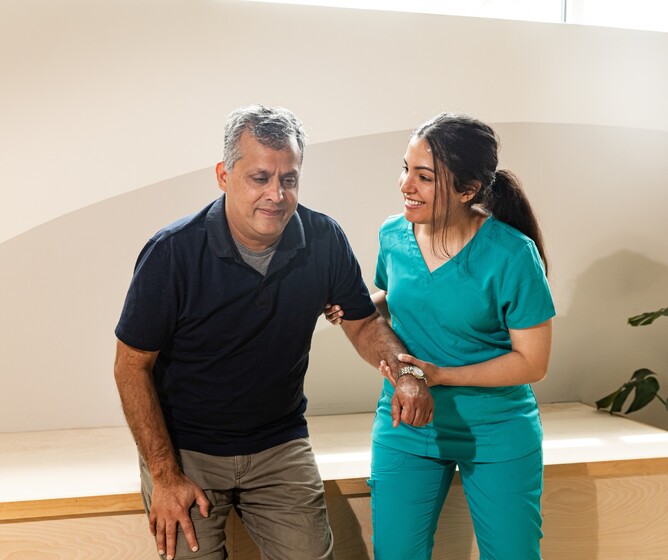The Future of Therapy Assistance: Trends and Innovations in the Field
Therapy Assistants are playing an increasingly vital role in the allied health sector, with demand for their services growing across various disciplines such as Occupational Therapy, Physiotherapy, and Exercise Physiology. As the healthcare landscape evolves, Therapy Assistants help deliver high-quality care, making therapy more accessible and efficient, especially for underserved populations. This blog explores future trends and innovations shaping the role of Therapy Assistants, highlighting how these developments will improve patient outcomes and reshape the future of healthcare.
The Evolving Role of Therapy Assistants in Allied Health
Therapy Assistants work closely under the guidance of allied health professionals to support patient care. Their current responsibilities include assisting with treatment plans, delivering therapeutic exercises, and helping patients achieve their health goals. As healthcare systems face increased demand, Therapy Assistants are being relied on more heavily to improve efficiency and patient access to therapy services. This is particularly important in rural and underserved areas, where access to healthcare professionals can be limited, and Therapy Assistants provide essential support in closing these gaps.
Technological Innovations Shaping Therapy Assistance
Technological advancements are revolutionizing the way Therapy Assistants work. Telehealth platforms, for example, enable remote therapy sessions, making it easier for patients in rural or remote areas to access care. Wearable technology, such as fitness trackers and smartwatches, can monitor patient progress and provide valuable data to Therapy Assistants and supervising therapists. Robotics and assistive devices are also transforming the field, assisting patients with mobility challenges and promoting independence.
Enhanced Education and Training for Therapy Assistants
To meet the evolving demands of the profession, Therapy Assistants are undergoing specialized training and continuing education. This includes obtaining certifications in areas like neurological rehabilitation, pediatrics, and geriatric care. Additionally, digital learning platforms and simulated training are providing opportunities for Therapy Assistants to develop practical skills in a safe and controlled environment.
Patient-Centered Care Models and Therapy Assistance
The future of Therapy Assistance is centered around patient-centered care. Collaborative, interdisciplinary approaches involving Therapy Assistants, Physiotherapists, Occupational Therapists, and Dietitians ensure that patients receive comprehensive care. Personalized therapy programs, tailored to the individual needs of each patient, are also becoming more prevalent.
The Impact of Therapy Assistance on Patient Outcomes
Therapy Assistants are crucial in improving patient outcomes. Their involvement helps patients recover faster, improve mobility, and regain independence. Therapy Assistants also foster greater adherence to treatment plans by providing consistent support and motivation, ensuring patients stay on course with their rehabilitation.
Challenges and Opportunities in the Future of Therapy Assistance
While the future of Therapy Assistance looks promising, there are challenges to address. Workforce shortages in the healthcare sector, including allied health, remain a concern. Additionally, the rapid pace of technological change requires Therapy Assistants to continuously adapt and learn new skills.
Conclusion
The future of therapy assistance is bright, with trends and innovations reshaping the role and expanding its potential. From telehealth and robotics to enhanced training and personalized care, Therapy Assistants are becoming integral to healthcare’s evolution. Their contributions are improving patient outcomes, enhancing care efficiency, and helping address the challenges of workforce shortages and healthcare access.
Interested in learning more about how Therapy Assistance can benefit you or your loved ones? Contact Holistic Strength today to schedule a consultation with one of our experienced Therapy Assistants. Our team is dedicated to providing personalized care and helping you achieve your health goals.
